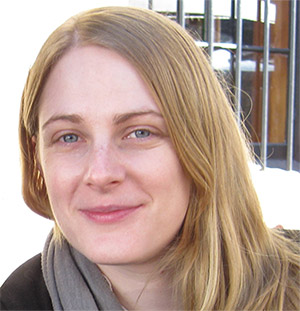
Bianca Skilbeck
Bianca Skilbeck is a Hypnotherapist and Counsellor from Melbourne, Australia.
How long have you been practising?
18 months.
Do you see clients from home or in a clinic?
Both in fact! I have my own business from home where I see clients, and I have also recently embarked on an internship with a successful hypnotherapy practice in Melbourne. As I’m new to the profession, this is a wonderful opportunity for me to learn and develop my skills.
What problems/issues do you treat most frequently?
In the clinic, particularly at this time of year (new year’s resolutions and all), I see a lot of people for smoking cessation and weight loss. In my personal practice I work with the same issues, though I find that self-esteem is a big one that keeps coming up again and again.
What are your biggest frustrations running your practice?
As my personal practice is still only small at this stage, I don’t have an eftpos / credit card machine and this inhibits my ability to take deposits in advance. I find that this results in clients often cancelling last minute or just not showing up; particularly clients who are coming for addictions such as cigarettes.
What do you find hardest about your daily work?
One of the first things that I noticed about doing this work full time, is that we spend hours and days at a time, listening to people and talking about their problems with them.
Of course that is a thing that I love to do, but it’s not easy when at the end of the day, you’ve not had that usual interaction that you might get in other professions or jobs; where you interact with colleagues, each showing interest in the other’s feelings, thoughts and interests.
I suppose that what I’m trying to say is that I can easily feel a certain type of loneliness in not being able to communicate any of my own thoughts, feelings or interests, and that is why I make it a priority to get that kind of social interaction and support outside of working hours; maintaining good relationships with friends and family, as well as utilising supervision to discuss any bigger issues that arise.
Do you find your professional body supportive and helpful? Do they help you create connections with fellow therapists?
I am a member of one of the largest professional bodies in Australia. I can’t say that I’ve found them either helpful or unhelpful at this point, though initially, some of the processes involved in gaining membership were quite confusing. Because my studies finished only recently, I have retained good contacts with fellow therapists through my school.
How do you balance work and life?
I do what I can to maintain good relationships with friends and family and ensure that if there is anything going on for me personally that I take the time to speak about it.
I also make sure that I take the ‘alone’ time that I need, to do simple things like just have a coffee, read some fiction or do some exercise – whatever it may be to help me get that mental space that I need. I feel it’s also really important to know my limits; not overbooking myself or seeing clients at the detriment to other things in my life.
Maintaining this kind of balance is as critical to my own wellbeing as it is critical to being able to give 100 percent of my attention, focus and care in each session that I do with a client.
What frustrates you most about the way mental health is dealt with in your country?
It frustrates me that Hypnotherapy is still so underrated and underutilised by the medical profession in Australia. I can understand that this is purely because the research which would qualify just how powerful hypnosis can be, hasn’t been done in Australia just yet.
However, I have hope that this will change in time. Until then, it remains frustrating that it’s not a more ‘mainstream’ therapy that is out there for people. Having said this, I think that it is gaining in popularity more and more, as people talk about their positive experiences with one another.
Can you tell us about your most uplifting experience treating a recent client? (anonymously of course!)
Recently, I spontaneously got a text message from a client who I treated for smoking cessation. It was quite a heartfelt message, just saying how well she was going and how things had really changed for her since the session that she had with me and how thankful she was.
That really made my day.
Click here to read more about Bianca’s work.

Pictured above: Bianca’s therapy room.
If you would like to be our next Practitioner in Focus, click here and let us know!






